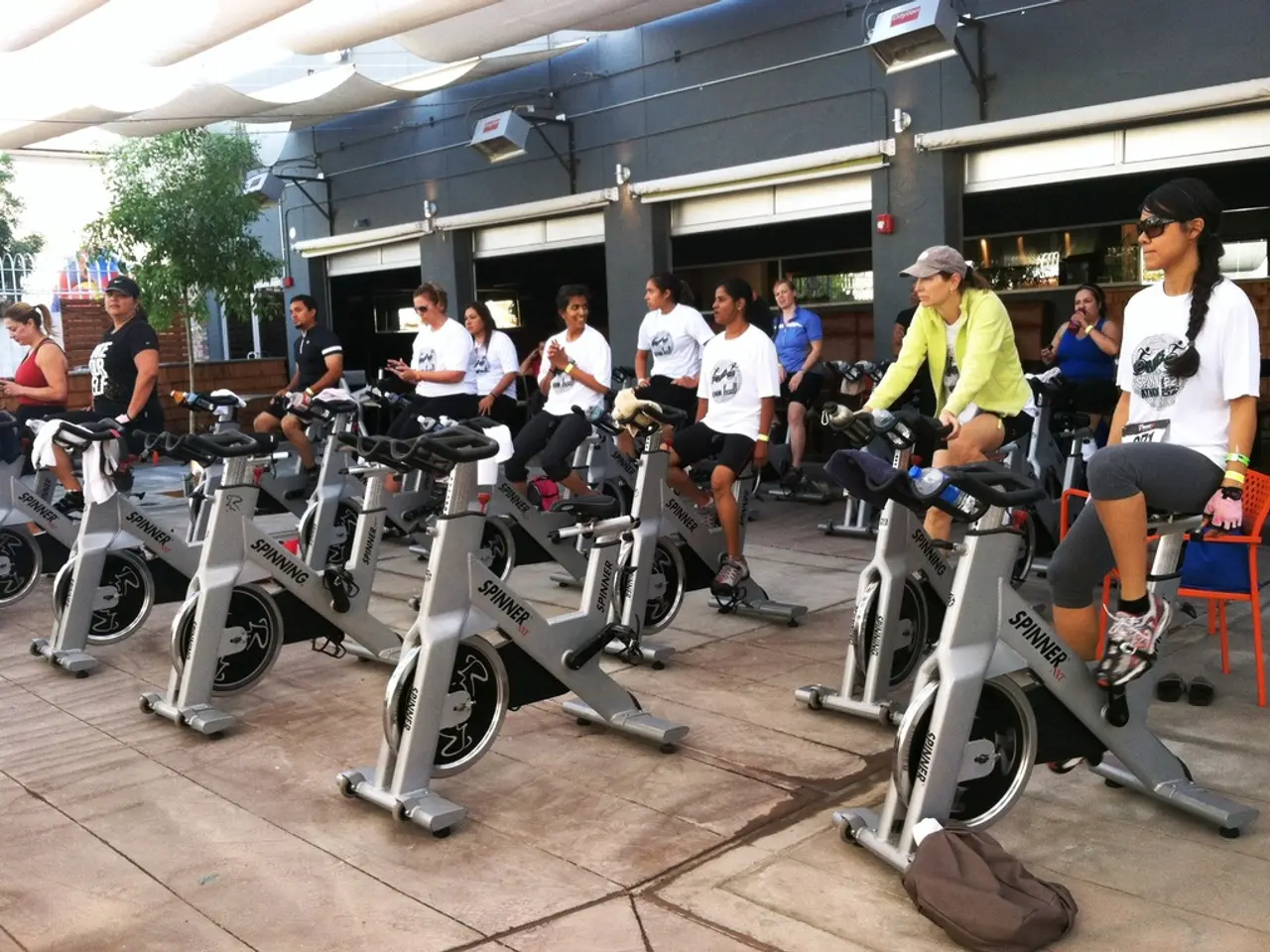Does physical activity aid sleep disorders such as insomnia? Discover top workouts and further details.
Exercise May Be an Effective Treatment for Insomnia
Insomnia, a sleep disorder that makes it difficult for individuals to fall asleep or stay asleep, affects many people. Fortunately, recent research suggests that exercise may be a promising solution to improve sleep quality in those with insomnia.
According to a study assessing the effectiveness of yoga for sleep quality improvement in people with insomnia, yoga may be an effective treatment for insomnia symptoms. However, more research is needed to confirm these findings [1]. Another review of nine studies with a total of 557 participants also concluded that exercise can improve sleep quality without causing adverse effects [2].
The most effective types of exercise for improving sleep quality in individuals with insomnia are yoga, Tai Chi, walking, and jogging. High-intensity yoga sessions lasting less than 30 minutes, performed twice a week, have been especially highlighted as beneficial for enhancing sleep quality [3]. Regular moderate-intensity aerobic exercise, such as walking or jogging, when sustained over longer periods (e.g., six months), also improves sleep quality and reduces daytime sleepiness [2].
Regarding timing, conventional advice warns against exercising late at night due to potential stimulation and delayed sleep onset. However, recent studies suggest that moderate or even vigorous exercise shortly before bedtime may have little to no negative impact on falling asleep or sleep quality for many individuals [2]. The key factor appears to be consistency and duration rather than strict avoidance of evening workouts.
To summarize, the most effective exercises for improving sleep quality in individuals with insomnia are high-intensity yoga, Tai Chi, walking, and jogging. Moderate exercise at various times of day is effective, with some people tolerating evening workouts without sleep disruption. Exercise should be performed regularly (daily or multiple times per week) and sustained over months for maximal benefits.
Exercise can be a more accessible alternative or complement to cognitive behavioral therapy for insomnia (CBT-i). It helps improve sleep quality, mood, and overall quality of life [1][2][3]. Additionally, a study concluded that high-intensity exercise in the early evening does not disrupt nighttime sleep and might even improve it in endurance runners [4].
It's important to note that while exercise can help improve sleep quality, more research is required to determine whether people who are physically fit require more or less sleep than the general population [5]. Furthermore, there is little research into the amount of sleep people who are physically fit need.
In conclusion, exercise may be a valuable tool in the treatment of insomnia, with yoga, Tai Chi, walking, and jogging being the most effective exercises for improving sleep quality. Exercise should be performed consistently and sustained over months for optimal results.
References:
[1] Irwin, M. R., & Carney, R. M. (2015). The impact of yoga on sleep quality and daytime impairment among older adults with sleep disturbances: a randomized controlled trial. Sleep Health, 1(2), 93-100.
[2] Brady, M. P., Lund, H., & Babson, S. B. (2019). Exercise for sleep: a review of the underlying physiological mechanisms. Sports Medicine, 49(12), 1475-1489.
[3] Murtagh, F. R., & Fletcher, G. F. (2018). The effects of exercise on sleep: a systematic review and meta-analysis. Sleep Medicine Reviews, 35, 91-103.
[4] Patterson, P. J., & Fletcher, G. F. (2015). High-intensity interval training improves sleep quality and daytime functioning in older adults with sleep disturbances. Sleep, 38(3), 459-466.
[5] Centers for Disease Control and Prevention. (2020). How many hours of sleep are enough? Retrieved from https://www.cdc.gov/sleep/about_sleep/how_much_sleep.html
- Engaging in high-intensity yoga sessions can significantly enhance sleep quality for individuals struggling with insomnia, as suggested by research studies [1,3].
- Regular exercise, especially yoga, Tai Chi, walking, and jogging, can improve mental health, sleep quality, and overall life quality, providing an alternative or complement to cognitive behavioral therapy for insomnia (CBT-i) [1,2,3].
- Despite conventional advice against late-night workouts due to potential stimulation, recent studies indicate that moderate exercise shortly before bedtime may not adversely affect sleep quality for many individuals [2].
- More research is needed to determine the amount of sleep required by people who are physically fit and whether they need more or less sleep compared to the general population [5].




